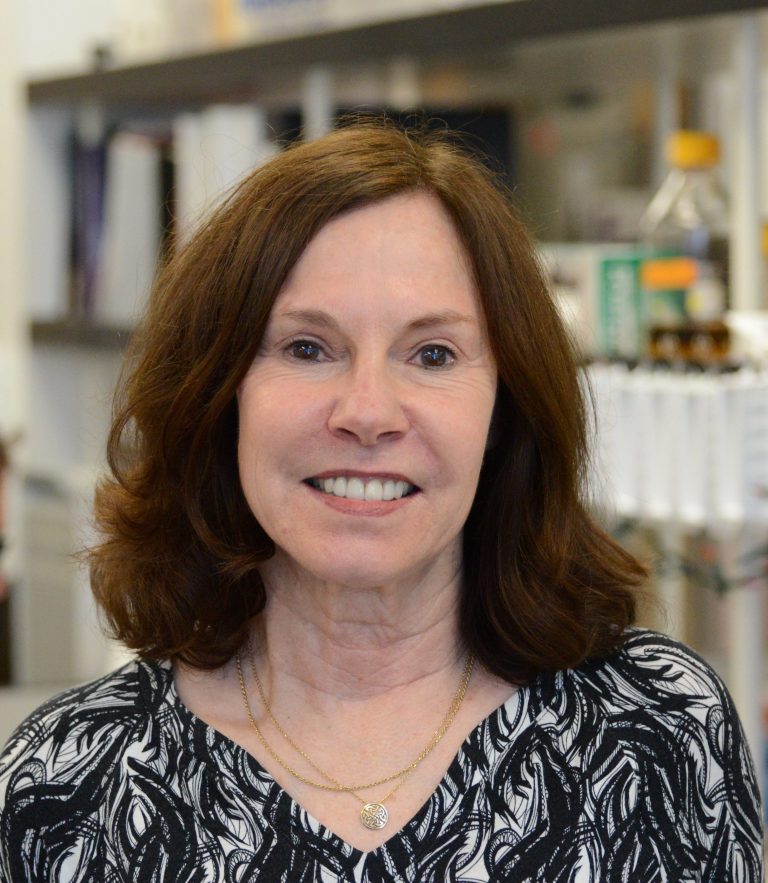Untitled 1
About

Dr. Bradley received her doctorate from the University of California, Berkeley in 1981 in studies of CD4 T cell subsets that regulate humoral
immune responses. Her work on the regulation of CD4 T cells continued during her postdoctoral training at the Oregon Primate Research center and
at the University of California, San Diego where she was appointed Assistant Research Professor in 1991. It was at this time that NIH sponsored her
research program on CD4 T cells and she discovered the key associations between migration and function. She joined the Scripps Research institute as
an Assistant Professor in 1996 where she expanded her work on CD4 T cells into the arena of autoimmunity and discovered the essential role of the cytokine,
interleukin-7, in the regulation of CD4 cell homeostasis. She joined the Sidney Kimmel Cancer Center in 2001 as an Associate Professor, and was promoted to
Professor in 2005. She joined the Sanford Burnham Medical Discovery Institute as a Professor in the Infectious and Inflammatory Diseases Center in 2009 and
became the Director of the Tumor Microenvironment and Cancer Immunology Program in 2018. Her current work is focused on identifying mechanisms that promote
effective CD8 T cell effective responses to virus infections and cancer in which CD4 T cells play an integral role. Dr. Bradley is recognized as a key contributor
in the field of T cell biology, is an invited speaker at many national and international meetings, and serves on several study sections for the NIH.
Dennis obtained his PhD in Biology from the University of California, San Diego an age ago. He is currently a Staff Scientist in the Bradley lab at SBP Discovery
studying immune checkpoint inhibitors, chronic viral infection and autoimmune disease. Previously, Dennis worked as a post-doc and project scientist in the lab of
Dr. Michael David at UCSD where he studied the role of interferon beta in T cell development, activation, and tolerance. His interest lies in the effect of chronic
viral infection on the development and progression of autoimmune disease.
Jenna received her PhD in Microbiology and Immunology at Drexel University College of Medicine in Philadelphia, PA. She previously trained with Dr. Peter
Katsikis at Drexel University College of Medicine and at Erasmus University Medical Center in Rotterdam, The Netherlands where she studied the role of microRNAs
in the development of effective CD8+ T cell responses to viral infection and cancer. As a postdoctoral fellow in the Bradley lab, her current studies are focused
on understanding the cellular and molecular mechanisms involved in preventing or reversing T cell exhaustion in cancer. Ultimately, she hopes these findings can be
applied in the development of therapeutics.
Eunah obtained her Ph.D. in Immunology at Seoul National University in Seoul, Republic of Korea. Her previous studies focused on overcoming T cell exhaustion in tumors to
improve cancer immunotherapy under the guidance of Dr. Chang-Yuil Kang. She joined the Bradley lab to continue her training as a postdoctoral researcher and study on understanding
T cell immune responses in tumor microenvironments. Her studies are centered on elucidating mechanisms as to how the ER stress response in T cells regulates anti-tumor immunity.
Hannah obtained her Bachelor of Science in Molecular Biology from the University of California, San Diego in 2018 and is a research assistant in the Bradley Lab.
Previously, Hannah interned in The Feeney Lab at The Scripps Research Institute. She plans on continuing her education in the future by attending graduate school
to study Immunology.
Ashley graduated from the University of California, San Diego in 2019 and joined the Bradley lab as a research intern before becoming a research assistant. She plans
to continue her education by going to graduate school in the future.
|
|
|
|
|
|
|
|
|
|